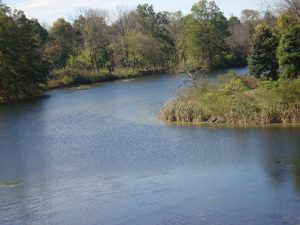
Essayist John Burroughs once famously gave the wise suggestion to “go to nature to be soothed and healed”. His words seem to hold true even today, as scientific studies suggest numerous health benefits to be had from nature, benefits like reducing depression and aiding healing.
While most prefer a beach trip or a jungle safari, an often overlooked way to communicate with nature is viewing a weather phenomenon like Aurora Borealis in all its glory.
What Is Aurora Borealis?
Aurora Borealis or Northern Lights are a beautiful display of vibrant glowing lights that takes place on the Earth’s Northern Hemisphere. It’s caused by plasma particles that escaped from the sun’s surface and couldn’t be accelerated away by the Earth’s own magnetic field. The plasma particles’ interaction with Earth’s gaseous atmosphere results in a spectacular display of lights that has been described as “fire in the sky”.
The Northern Lights occur in varying colors that range from red to violet. However, the most common colors associated with the phenomenon are green and yellow caused by oxygen in the atmosphere interacting with the solar particles. Occasionally shades of red, blue and violet occur due to nitrogen.
The Lights also don’t appear in any one particular fashion – they may appear as a strand in the sky or as a running stream of light when the concentration of solar particles is high.
Where to Go to See the Northern Lights?
Considering the beauty of the sight it offers, most tourists visit countries located in the Auroral Ring like Iceland and Norway to experience the Lights in their full majestic glory. Tour operators offer special packages for viewing Aurora Borealis that includes visiting towns with minimal light pollution.
Minimal light pollution ensures that the weather phenomenon is viewed at its peak brightness. Besides Scandinavian countries, one can view the Lights in North America especially in northwest areas of Canada and Alaska where the Lights are quite noticeable.
The phenomenon is not just limited to the Northern Hemisphere. When the phenomenon takes place in the Southern Hemisphere, it is known as Aurora Australia. These Lights though aren’t viewed by many as the Antarctic has difficult climatic conditions and is not a hospitable place to visit. Although they occur from time to time throughout the year, Aurora Borealis is best viewed in winter, lasting from September to April when nights offer the most darkness.
Following are the links to some of the other science and technology related articles that Amita Vadlamudi had published:
https://issuu.com/amitavadlamudi/docs/roman_aqueducts.docx
https://medium.com/@Amita_Vadlamudi/the-impact-of-botany-and-tissue-culture-on-plants-6471b9bf2e85





